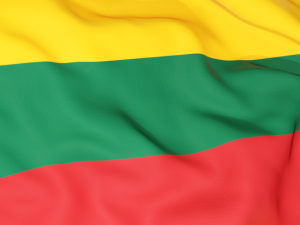The unicameral parliament of Lithuania has adopted two laws concerning the future Unitary Patent system.
A bill on ratification of the UPC Agreement and a bill on the establishment of a Nordic-Baltic regional division of the UPC were approved on 3 Novermber 2017. They will enter into force on 1 July 2017, according to the website of the Lithuanian IPO. Before that time, amendments to the patent law of Lithuania will have to be adopted. These have already been submitted to the parliament.
 According to a Bristows report, article 2 of the UPCA ratification bill has already entered into force. It reportedly provides ‘that by 1 June 2017: (a) the government will appoint the Lithuanian representatives on the UPC Administrative and Budget Committees; and (b) the Judicial Council will submit a proposal for the appointment of the Lithuanian representative on the UPC Advisory Committee (which advises on the appointment of UPC judges).’
According to a Bristows report, article 2 of the UPCA ratification bill has already entered into force. It reportedly provides ‘that by 1 June 2017: (a) the government will appoint the Lithuanian representatives on the UPC Administrative and Budget Committees; and (b) the Judicial Council will submit a proposal for the appointment of the Lithuanian representative on the UPC Advisory Committee (which advises on the appointment of UPC judges).’
The establishment of the Nordic-Baltic Regional Division of the UPC was agreed on in 2014 by Estonia, Latvia, Lithuania and Sweden. It will have its seat in Stockholm, but cases may be heard in Lithuania as well. So far, only Sweden has completed the ratification procedure, by depositing its instrument of ratification with the EU Council on 5 June 2014. The regional division could start functioning with just Sweden and Lithuania.
So far, 11 member states have ratified the UPCA. In order for the Unitary Patent system to launch, 13 ratifications are needed, including those of France (which ratified in 2014), Germany (which might ratify later this year) and the UK. Since the Brexit vote, uncertainty reigns over the future of the system, as it is doubtful whether the UK wants to stay in.
Earlier this month, the Institute of Professional Representatives before the European Patent Office (epi), published an update on the state of affairs in the member states of the Unitary Patent system. Slovenia is expected to ratify the UPCA any time soon, both chambers of Parliament in Italy have approved the ratification bill as well. According to the epi there is however no progress in Cyprus, the Czech Republic, Greece, Croatia, among others.
About Ireland, the report says: ‘Before Ireland is able to ratify the UPCA, a referendum will be necessary. (…) the referendum is not expected any time soon due to a lack of political will at the moment.’ And the Slovak Republic ‘will wait until the system is operational. Officials are discussing whether a study on the impact of the UPC on the Slovak economy should be conducted. (…).’
The situation in Hungary, where the UPC’s training centre is based, is not clear: ‘It is assumed that Hungary will ratify the UPCA, but it is not known when. A study on the impact of the UPC on the Hungarian economy, ordered by the Hungarian Patent Office, was conducted by PWC. The outcome of this study was negative. However, a new study, ordered by the Ministry of Justice, as the competent body, is under preparation by EY. The result of the study will not be binding.’
For regular updates on the Unitary Patent and the Unified Patent Court, subscribe to this blog and the free Kluwer IP Law Newsletter.
________________________
To make sure you do not miss out on regular updates from the Kluwer Patent Blog, please subscribe here.


